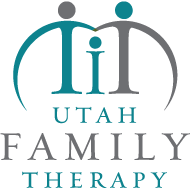Using Dialectical Behavior Therapy (DBT) for Healing at Utah Family Therapy
In the realm of mental health treatment, Dialectical Behavior Therapy (DBT) is a transformative approach, offering hope and healing to individuals grappling with emotional dysregulation, trauma, and other psychological challenges.
Utah Family Therapy has embraced DBT and Integrated it in our Intensive Outpatient Program (IOP) and individual therapy sessions, recognizing its efficacy in promoting emotional well-being and resilience.
This article explores the essence of DBT, its principles, and how Utah Family Therapy leverages this approach to foster healing and growth.

Quick Links
Understanding DBT
Developed by psychologist Dr. Marsha Linehan in the late 1980s, DBT combines cognitive-behavioral techniques with Eastern mindfulness practices, emphasizing acceptance and change.
At its core, DBT seeks to balance opposing concepts – acceptance and change, validation and problem-solving – hence the term “dialectical.”
It has been highly effective for individuals with borderline personality disorder (BPD).
Still, it has also proven beneficial for treating a wide range of mental health conditions, including depression, anxiety, substance abuse, and eating disorders.
Critical Components of DBT
Mindfulness
Mindfulness forms the foundation of DBT, encouraging individuals to observe their thoughts, emotions, feelings, and sensations without judgment.
By cultivating present-moment awareness, clients develop the capacity to respond to challenging situations rather than reacting impulsively.
Distress Tolerance
DBT equips individuals with coping strategies to navigate distressing situations without resorting to harmful behaviors.
Techniques such as self-soothing activities, distraction, and radical acceptance empower clients to tolerate discomfort and manage crises effectively.
Emotional Regulation
Many individuals struggle with intense and fluctuating emotions, leading to impulsive actions and interpersonal conflicts.
DBT teaches practical skills to identify, understand, and regulate emotions, promoting emotional stability and resilience.
Interpersonal Effectiveness
Healthy relationships are vital for mental well-being, yet many individuals encounter difficulties in communication and boundary-setting.
DBT offers tools to enhance interpersonal skills, including assertiveness training, conflict resolution, and building meaningful connections.
How Utah Family Therapy Utilizes DBT
Integrated in Intensive Outpatient Programs (IOP)
Utah Family Therapy’s Intensive Outpatient Program (IOP) provides a comprehensive treatment approach for individuals facing complex mental health issues.
A main component to this program is the incorporation of DBT principles and techniques into group therapy sessions.
Participants learn and practice skills essential for emotional regulation and distress tolerance in a supportive and collaborative environment.
Group sessions offer a platform for clients to share experiences, receive validation, and gain insights from others facing similar challenges.
Through structured exercises and role-playing, participants develop practical strategies to navigate real-life situations.
Moreover, the supportive community fostered within the IOP cultivates a sense of belonging and mutual encouragement, which is essential for long-term recovery.
Individual Therapy:
In addition to group therapy, Utah Family Therapy integrates DBT into individual counseling sessions, tailoring interventions to meet each client’s unique needs and goals.
Therapists collaborate with clients to identify specific areas of difficulty and co-create personalized treatment plans grounded in DBT principles.
Individual therapy sessions are a safe space for clients to explore underlying emotions, trauma, and maladaptive patterns of thinking and behavior.
Clients develop increased self-awareness and insight into their inner experiences through cognitive-behavioral techniques (CBT) and mindfulness practices.
Therapists guide clients in applying DBT skills to daily life challenges, empowering them to break free from destructive cycles and cultivate a sense of agency and control.
Emphasis on Skill-Building
Utah Family Therapy strongly emphasizes skill-building within the context of DBT.
Clients are encouraged to practice newly acquired skills between sessions and track their progress using a journal.
Regular homework assignments and experiential exercises reinforce learning and facilitate the integration of DBT principles into everyday life.
Moreover, therapists provide ongoing support and feedback, helping clients troubleshoot obstacles and refine their skills.
Through consistent practice and reinforcement, clients gradually internalize DBT strategies, paving the way for lasting change and emotional resilience.
Holistic Approach
Utah Family Therapy adopts a holistic approach to healing, recognizing the interconnectedness of mind, body, and spirit. using CBT and DBT.
In addition to CBT and DBT techniques, clients are encouraged to explore complementary modalities such as yoga, meditation, and expressive arts therapy to enhance their well-being.
By addressing the multifaceted aspects of our shared human experience, Utah Family Therapy fosters a comprehensive and sustainable path to healing.
Clients are empowered to cultivate a sense of balance and harmony in their lives, transcending limitations and embracing their inherent potential for growth and transformation.
Conclusion
Dialectical Behavior Therapy (DBT) represents a powerful paradigm shift in mental health treatment, offering a synthesis of acceptance and change, compassion, and accountability.
Utah Family Therapy has embraced DBT as a one of our many modalities and Integrated it into our Intensive Outpatient Programs (IOP) and individual therapy sessions, recognizing its capacity to promote healing and resilience.
Clients acquire practical skills to navigate life’s challenges with grace and resilience through mindfulness, distress tolerance, emotion regulation, and interpersonal effectiveness.
By integrating DBT principles into therapy sessions and fostering a supportive community of growth and learning, Utah Family Therapy empowers individuals to embark on self-discovery and transformation, reclaiming their lives and forging lasting healing and well-being.
Action Steps
For individuals seeking Dialectical Behavior Therapy (DBT), here are some action steps to consider:
1. Find a Qualified DBT Therapist or Program
Seek out licensed therapists or mental health professionals trained and experienced in delivering DBT.
Consider attending a DBT program or group therapy sessions offered by reputable mental health clinics or treatment centers.
2. Research & Educate Yourself
Take the time to learn about DBT, its principles, and its effectiveness in treating various mental health conditions.
Read books, articles, and reputable online resources to understand DBT and its potential benefits better.
3. Assess Your Needs & Goals
Reflect on your mental health concerns, challenges, and areas where you want to improve.
Set specific and realistic goals for yourself, such as reducing emotional dysregulation, improving interpersonal relationships, or managing impulsivity.
4. Commit to Regular Attendance & Participation
Commit to attending therapy sessions consistently and actively engage in the treatment process.
Be open and honest with your therapist, even if your thoughts and feelings are challenging to discuss.
5. Practice Mindfulness
Start incorporating a daily mindfulness routine, such as meditation, deep breathing exercises, or mindful walking.
Cultivate present-moment awareness and non-judgmental observation of your thoughts, emotions, and sensations.
6. Implement DBT Skills in Daily Life
Integrating DBT skills into daily life to manage stress, regulate emotions, and improve interpersonal interactions.
Practice distress tolerance techniques, emotion regulation strategies, and practical communication skills in real-life situations.
7. Keep a Diary or Journal
Keep a journal, track your progress, document your thoughts, feelings, and emotions, and identify patterns or triggers.
Use a journal to monitor your DBT skills and evaluate their effectiveness over time.
8. Seek Support from Peers
Join a support group or online support program who are also pursuing DBT or dealing with similar mental health challenges.
Share thoughts, experiences, insights, and coping strategies with others who can offer empathy, validation, and encouragement.
9. Be Patient & Persistent
Recognize that change takes time and effort, so be patient with yourself as you navigate the therapeutic process.
Stay committed and connected to your goals, and continue practicing DBT skills, even when progress feels slow or setbacks occur.
10. Celebrate Achievements & Milestones
Along the way, acknowledge and celebrate your accomplishments, no matter how small.
Recognize your progress and the positive changes you have experienced due to your dedication to DBT.
